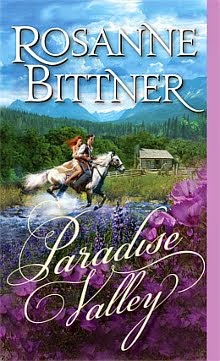The following came from an old e-mail I received from someone named Mary Murphy 9 years ago. I have no idea where she got the information, but I printed it off and saved it and I often use it to read to young people when I speak at a schools. They always get a kick out of it, and it helps them appreciate history. Following are some very interesting and "oh my gosh" real facts from history – and a demonstration of the ways in which - in today's ultra-modern world – we continue to be affected by the past.
Did you know that the way they lived in ancient Rome still has a profound affect on us today? I am not talking about the fact that a good share of our language is derived from Latin. I am talking about today's railroad tracks. Yes, railroad tracks – and their width – which has not changed since the Romans conquered half the world and used chariots to get them where they were going!
Today's standard railroad gauge (the distance between the two rails) is 4 feet, 8.5 inches. What an odd number, but it is used because that's the way they built railroads in England, and English expatriates built the U.S. railroads.
Why did the English use that gauge? Because before the railroad, tramways were built using that same gauge. Why did they use that gauge for tramways? Because those who built tramways used the same jigs and tools and measurements that were used to build wagons, and wagon wheels were spaced 4 feet, 8.5 inches apart. If wagon wheels were spaced any differently, they would break apart on the roads because that was the width of the ruts in the old dirt roads.
And why were the ruts in the roads that width? Because originally the road ruts in England and in most of Europe and Africa and even parts of Asia were worn into the ground by Roman chariots, and the wheels of those chariots were 4 feet, 8.5 inches apart. And why were they this width? Because the chariots were built just wide enough to accommodate the back ends of two war horses!!
Soooo ... The U.S. standard railroad gauge of 4 feet, 8.5 inches is derived from the original specifications for an Imperial Roman war chariot! But that's not all, folks. Here is an ironic twist!! When sitting on the launch pad, a space shuttle has two big booster rockets attached to the sides of the main fuel tank. These "solid rocket boosters" (called SRB's) are made by Thiokol at a factory in Utah. The engineers who designed them wanted to make them a bit fatter, but the SRB's had to be shipped by train from Utah to the launch site. The railroad line runs through tunnels in the Rocky Mountains, and if the SRB's were any fatter, they couldn't get through the tunnels, which are only slightly wider than the railroad tracks, which you now know are only wide enough to fit two horse's behinds. So a major space shuttle design feature of what is the world's most advanced transportation system was determined over two thousand years ago by the width of a horse's ass!!! And you thought being a Horse's Ass was not important!
Yes, history can be surprisingly interesting! Save this, dear readers, and read it to your children or grandchildren when they ask why they have to bother learning history. It helps them understand that history can be fun! Following are some very interesting facts that come from a writer named Pricilla A. Maine, who sent me this in an e-mail also in 2002. I would first like to quote something she wrote that perfectly fits the reason I write western historicals ...
"My great-grandmothers came west with a wagon load of dreams. They birthed and buried their infants alone, plowed fields, outlived husbands, survived dust bowls and the Great Depression. It is their hardships, tragedies, and triumphs that inspire my writing."
Following are some wonderfully interesting facts in Priscilla's e-mail:
The reason June is a popular month for weddings is because in the early days most people took their "yearly" baths in May, when it was getting warm and they couldn't stand how they smelled after the long cold winter. These baths didn't always get rid of all the smell, so brides carried bouquets to help hide the body odor! And because water was not always handy, in areas where it was scarce the man of the house came first. He got the nice, clean water. Then came the sons, and finally the women and children, who all used the same water! Because children were last, we are left with the term, "Don't throw the baby out with the bath water!"
Ever hear someone say, "It's raining cats and dogs?" Well, in the old days many houses had a thatch roof (thick straw piled high). Because in winter it was warm there, small animals would sometimes climb up onto the roof to burrow in. When it rained these roofs sometimes became slippery ... and well, you can figure out the rest. Of course, there wasn't anything to keep bugs and such from falling into the house either, so women would hang sheets on a four-poster bed to keep rodents and insects from falling onto the bed. And thus we have the "canopy bed."
The floors in these houses were, of course, dirt. Only the wealthy had wood floors – thus the term "dirt poor." See? Didn't I tell you history can be interesting? And sometimes the wood (slat) floors of the wealthier people would get slippery in winter, so they would spread straw on the floor to help keep from slipping. As they kept adding fresh straw, it would sometimes build up enough that when the door was opened some of it would get pushed outside. They therefore built wooden barriers across the bottom of the doorway – and thus we have "thresh holds."
In the old days families were big (often extended families lived together) and thus they were always eating. Because of this a woman of middle-income or poor families would keep a large kettle hanging over the fire always filled with something to eat. As people ate from the kettle, the woman would continue adding a little water and salt and fat keep throwing in leftovers and pretty much anything someone might bring home from the fields or woods (and if they were lucky, a little meat). Every morning the woman would re-light the fire, and the "stew" in the pot would be eaten for breakfast, lunch and dinner. This might go on for days – thus the term – "Peas porridge hot, peas porridge cold, peas porridge in the pot nine days old."
Isn't this fun? Families who could afford pork considered themselves quite special, and when visitors came, the often hung up their bacon to show off! And so it was considered a sign of wealth when a man could "bring home the bacon." Sometimes the woman would cut off a sliver of bacon to share with guests and they would sit around and "chew the fat."
Want to know why for about 400 years tomatoes were considered poisonous? Well in the old days most plates were made of pewter. The lead in the pewter would leach into foods with a high acid content, which of course they did not know. When people ate them, they would contract lead poisoning and many died from it.
Want to know where the term "trench mouth" came from? Well, those who did not use pewter plates often used bowls called "trenchers." These trenchers were usually made of wood, but sometimes they were made from stale bread that was so old and hard it could be used to eat from. Of course, eventually worms and mold got into the old bread, and sometimes even into wooden bowls, since they were usually just wiped out and almost never washed. When this happened, people would get sores in their mouths and other diseases ... thus the term "trench mouth." Don't you wonder sometimes how ANYONE lived to get older and produce more children back in those days?
And then there is the term "upper crust." That comes from the fact that often when a woman baked her bread, she gave the bottom (hardest, sometimes burned part of the bread) to the help. The family got the middle. Guests were always served only the top of the bread – thus, "upper crust."
And did you know that ale and whiskey were usually served in lead cups? If a man was a heavy drinker, the combination of the alcohol and of course – more lead – would sometimes knock him out so deeply that he seemed to be dead. But because people realized he'd had too much to drink and might NOT be dead, they would lay him out on a table and wait a couple of days to see if he might wake up. Thus, they held a "wake."
And in old England, where room to bury people was scarce, graves were often dug up and the bones taken to a "bone house" so the grave could be re-used for someone else. The horrifying part is that in many instances when they dug up the old coffins, they would find scratch marks inside the lids!! Thus, they began looping string around a dead person's wrist, pull it through a hole in the coffin and attach a bell to it, so that if a person "woke up" they could pull the string and alert those "above" that they were still alive! Thus, they would be "saved by the bell" and were considered "dead ringers." And people were hired to sit in graveyards at night and listen for those bells, which is why night workers work the "graveyard" shift!!!
Read this to your kids and then tell them "and you thought history was boring!"








